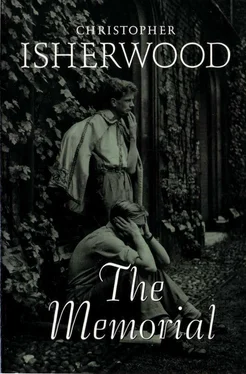Balefanio - tmp0
Здесь есть возможность читать онлайн «Balefanio - tmp0» весь текст электронной книги совершенно бесплатно (целиком полную версию без сокращений). В некоторых случаях можно слушать аудио, скачать через торрент в формате fb2 и присутствует краткое содержание. Жанр: Старинная литература, на английском языке. Описание произведения, (предисловие) а так же отзывы посетителей доступны на портале библиотеки ЛибКат.
- Название:tmp0
- Автор:
- Жанр:
- Год:неизвестен
- ISBN:нет данных
- Рейтинг книги:4 / 5. Голосов: 1
-
Избранное:Добавить в избранное
- Отзывы:
-
Ваша оценка:
- 80
- 1
- 2
- 3
- 4
- 5
tmp0: краткое содержание, описание и аннотация
Предлагаем к чтению аннотацию, описание, краткое содержание или предисловие (зависит от того, что написал сам автор книги «tmp0»). Если вы не нашли необходимую информацию о книге — напишите в комментариях, мы постараемся отыскать её.
tmp0 — читать онлайн бесплатно полную книгу (весь текст) целиком
Ниже представлен текст книги, разбитый по страницам. Система сохранения места последней прочитанной страницы, позволяет с удобством читать онлайн бесплатно книгу «tmp0», без необходимости каждый раз заново искать на чём Вы остановились. Поставьте закладку, и сможете в любой момент перейти на страницу, на которой закончили чтение.
Интервал:
Закладка:
"We've been looking forwards to this for weeks, miss," said Mrs. Beddoes, when she was alone with Lily. "So has Master and the Mistress—you wouldn't believe."
Whatever could she say? She'd wanted then, as later, when she took Mrs. Vernon's hands and kissed her, standing beneath the great glass chandelier in the drawing-room, to cry: Thank you, thank you—thank you for living in this house, for being so perfect. She would have liked to be absolutely schoolgirlish. But since she was grown-
up and couldn't, she put on her nicest dress, the pink and silver, hoping it would please them all. And now, what was she going to say about all that to her aunt: in her diary? She gave it up. Tonight she was too tired. But she didn't go to bed at once. She sat staring at herself in the mirror, silly with happiness, the jewel of her engagement ring against her lips.
"It scarcely seems possible that I have been here only a fortnight tomorrow," Lily wrote in her diary later. "Drove up the village with Mamma and Papa in the morning. . . ."
They drove up the village most mornings. First they stopped at the grocer's, then at the butcher's, then at the fishmonger's. The shopkeepers came running out and stood bowing at the brougham window. At the stationer's, where Mr. Vernon got his tobacco and mystery novels, Mrs. Vernon and Lily were left to travel on alone, visiting various poor houses in the back streets behind the Wesleyan Chapel. Kent was sent indoors with parcels, and women came out to thank Mrs. Vernon, wiping their hands on their aprons. Lily wished that they would have curtsied, as she'd seen the villagers do in a village in Suffolk where she sometimes went to stay. It was the only thing she criticised about Chapel Bridge—the people seemed so very off-hand. Their bows were little
more than nods. And the crowd of women in shawls and clogs whom one met trooping out of the mill at midday—they didn't even nod, they simply looked at you, not unpleasantly, but rather as if you were something in a museum. They seemed to take everything for granted. Once, this had struck Lily so forcibly that she had exclaimed in generous indignation, as they drove away:
"I'm afraid you're really too good to them, dearest Mamma. Unfortunately, that class can't always appreciate what's done for them."
Mrs. Vernon had extraordinarily delicate, pale Grecian features. Lily often thought that she was one of the most beautiful people she'd ever seen. She half-closed her eyes when she spoke:
"In this part of the world, my dear, one has to supply the appreciation oneself."
She lay, much of the afternoon and evening, on the sofa under the chandelier, in the drawing-room. Lily never heard what complaint she suffered from. She was simply fragile, as flawless china is fragile. Mary did all the housekeeping; Mr. Vernon brought her her books and papers from other rooms; she thanked them exquisitely by her mere gestures. She said:
"You all spoil me. I shall give you reason to regret it."
She lay with half-closed eyes, the white feather boa about her shoulders, wearing long gold earrings. And, as Lily looked at her, she sometimes
felt an absolute awe, an adoration. Mrs. Vernon seemed precious and sacred, like an ikon. Lily was secretly preparing an offering to make to her, a book of sketches of the Hall. When they were finished, she would bind them herself. Bookbinding was another of her small talents. Richard, of course, had to be shown the book, under strict promises of secrecy, as it progressed. He had seen all her earlier water-colours and sketches. These, he said, were better than anything else she had done. They were marvellous. Lily basked in his praises.
"How could they help being," she asked, "when everything's so perfect here?"
"Before you came, it was the dullest old hole you can imagine."
"You don't deserve to live in this house," she told him, half-shocked, "you can't appreciate it."
"You've made me appreciate it," said Richard.
The weeks passed into summer. Mrs. Vernon had come out of doors to lie in a chaise longue under the copper-beech on the Terrace. Her red sunshade protected her from the strong light streaming down through the leaves. Lily sat beside her. They talked of Lily's childhood, her dead parents, her aunt—to whom Mrs. Vernon asked always to be remembered in Lily's letters—of the wedding in the autumn. They talked of Richard—"You must promise me to take care of him," Mrs. Vernon had
said, and once: "My dear, how am I to forgive you for taking him away from me?" For Richard's work would be in London and they would live there, after the first year. But Lily answered: "You know, darling Mamma, that, if I could, I'd stay here always." Mrs. Vernon laughed and touched Lily's hand.
Once or twice a week they drove out in the victoria to pay calls. Often there were callers. The Wilmots drove over from Torkington, the Knowles from Mellor, bringing their visitors with them to see the Hall. There would be tea on the Terrace, and afterwards Mrs. Vernon would depute Lily— rather than Mary or Richard—to show them round. "Oh, she's much the best guide," she would say, smiling. "Lily knows the house better than we do ourselves." And so Lily, flushed with pride, would lead off Colonel Somebody or Lady So-and-So, beginning at the library and sparing them nothing, trying hard to communicate some part of her own glowing enthusiasm and sincerely vexed when the gentlemen seemed to prefer looking at her to examining the Blue Dash charger on the chest by the window. Once she went as far as exclaiming: "I don't believe you're attending to one word I say." The military man was all confusion: "Oh, I say, you know—dash it, ha ha, is that quite fair? I give you my word of honour. . . ." "You wouldn't have liked it," Lily cut him short with a smile, alarmed at her rudeness, "if I hadn't listened to all those
interesting things you were telling me about the Boers."
On other days—and this amused Lily more than the County people—there were callers from Chapel Bridge itself. The vicar's wife came and the doctor and the manager of the bank. Lily described them all in her letters. She was seldom malicious, and could write quite sincerely that Mr. Hassop was "delightfully vulgar." She loved to see Papa strolling with him in the garden, chatting so amiably, offering him cigars. Mr. Hassop made her feel the prestige of the Hall in the village, among the churchwardens and substantial men. He spoke of Papa always as the Squire, Mamma he treated as a kind of Queen. And really, thought Lily, they'd make a most imposing royal couple.
That summer, in the hot garden, it had been like a world where nothing will ever happen. Mamma under the tree, exclaiming, as visitors were announced: "The Philistines are upon us!" Papa telling how an Italian coachman had jumped off the box and snapped Papa's walking-stick across his knee in a fit of temper: "And, if you'll believe me, he said neither Dog nor Cat—simply got back into his seat and drove as hard as he could go, down to the Villa." Richard's voice from the tennis court, calling the score. A beautiful, happy world, in which next summer would be the same, and the next and the next—the County gossip, the Balls, engagements being announced, girls "coming out,"
talk about the cost of keeping up one's place—the shooting, hunting, livestock—humorous allusions to people who'd made money in cotton—Mrs. Beddoes and the others passing between the tea-table and the cool house, with plates of cress and cucumber sandwiches. The old safe, happy, beautiful world.
Papa made a convulsive movement, as though to commit suicide by flinging himself out of the carriage. He was only trying to throw away his cigar. Kent climbed down from the box and took it from him, while Eric opened the park gates. Lily had seen Kent light Papa's pipes, taking several pulls first at the pipe himself and wiping the mouthpiece on the sleeve of his coat. Another of his offices was to cut his master's corns in his attic smoking-room with a razor. Now he stubbed out the cigar against the wheel. Lily couldn't be sure whether he had or hadn't slipped it into his pocket.
Читать дальшеИнтервал:
Закладка:
Похожие книги на «tmp0»
Представляем Вашему вниманию похожие книги на «tmp0» списком для выбора. Мы отобрали схожую по названию и смыслу литературу в надежде предоставить читателям больше вариантов отыскать новые, интересные, ещё непрочитанные произведения.
Обсуждение, отзывы о книге «tmp0» и просто собственные мнения читателей. Оставьте ваши комментарии, напишите, что Вы думаете о произведении, его смысле или главных героях. Укажите что конкретно понравилось, а что нет, и почему Вы так считаете.





